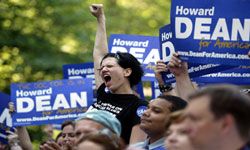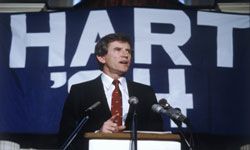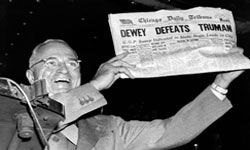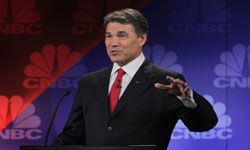Howard Dean was the Internet's first presidential darling. The unpolished, straight-talking former governor of Vermont used a strong online presence to recruit hordes of young "Deaniacs" who were expected to propel the Democratic candidate to the top of the ticket in 2004. Young, liberal voters were drawn to Dean by his off-the-cuff, unscripted attacks on both the Republican President George W. Bush and centrist members of Dean's own party [source: Kuhn].
In the end, it was Dean's most admired qualities -- his boldness, bluntness and distaste for scripted stump speeches -- that led to his undoing. Despite weighty endorsements by former presidential candidate Al Gore and Iowa Senator Tom Harkin, Dean placed a disappointing third in the Iowa Caucuses, an early gauge of primary campaign strength. When Dean took the stage in Iowa to rally his sunken supporters, his emotions got the better of him. The result is one of the most-played political fails on YouTube: the Dean scream.
From on-the-scene reports, we know that the room was whipped into a frenzy when Dean took the stage. The large, flag-waving crowd was raucous and very loud, but none of that comes through in the audio on the video clip [source: Salzman]. All we hear is what comes out of Dean's closely held microphone. As Dean reaches the climax of his speech, he starts rattling off the names of the other primary states where his campaign will do victorious battle, leading all the way to reclaiming the White House.
Again, reporters on the scene tell us that people in the crowd were yelling out names of primary states, which explains why the video clip shows Dean pointing menacingly at different spots in the crowd as he lists the state names [source: Salzman]. What can never be fully explained is the exclamatory noise Dean makes at the very end. It's somewhere between a cowboy's "yee-hah!" an evil genius' "bww-ahhh" and a mongoose being run over by a vacuum cleaner. Whatever it was, the crowd seemed to love it, as did the 24-hour cable news cycle and every late night host from Dave Letterman to whoever is the Dave Letterman of Albania.
The scream made Dean look unhinged, and the campaign lacked the appropriate damage control mechanisms to make a full recovery [source: Salzman]. Dean finished second in New Hampshire, but never gained back the momentum that fed his early popularity. He bowed out of the race in February.



